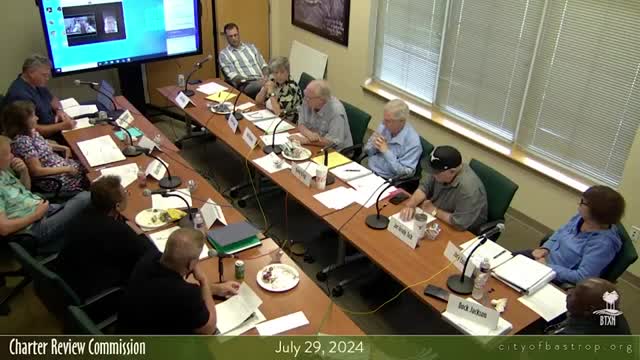City Council Debates Controversial Quorum Changes for Transparency
July 29, 2024 | Bastrop, Bastrop County, Texas
This article was created by AI summarizing key points discussed. AI makes mistakes, so for full details and context, please refer to the video of the full meeting. Please report any errors so we can fix them. Report an error »

In a recent government meeting, council members engaged in a robust discussion regarding proposed changes to the quorum requirements for city council meetings. The dialogue centered on the implications of defining a quorum as either three or four members, with significant emphasis on transparency and public trust.
One council member expressed optimism about a novel approach to the quorum issue, suggesting that it could simplify processes and enhance public engagement. This sentiment was echoed by others who noted that many citizens had voiced their desire for a clearer framework, indicating a potential support for the proposed changes.
The conversation also highlighted concerns about the interpretation of the Open Meetings Act, with legal insights provided by an attorney from the Freedom of Information Foundation. He clarified that while the act defines a quorum as a majority, home rule cities have the authority to establish their own definitions. This flexibility was seen as both an opportunity and a potential risk, with some members cautioning against the dangers of misinterpretation.
As the discussion progressed, differing opinions emerged regarding the necessity of the proposed changes. Some council members argued that the current system was adequate and that the proposed adjustments could lead to unnecessary complications. They expressed skepticism about the need for additional regulations, suggesting that the existing framework allowed for sufficient public oversight.
Ultimately, the council agreed to further refine the language of the proposal before putting it to a vote, emphasizing the importance of clarity in the rules governing their meetings. The outcome of this discussion will likely shape how city council members interact and communicate in the future, reflecting broader themes of governance, transparency, and community trust.
One council member expressed optimism about a novel approach to the quorum issue, suggesting that it could simplify processes and enhance public engagement. This sentiment was echoed by others who noted that many citizens had voiced their desire for a clearer framework, indicating a potential support for the proposed changes.
The conversation also highlighted concerns about the interpretation of the Open Meetings Act, with legal insights provided by an attorney from the Freedom of Information Foundation. He clarified that while the act defines a quorum as a majority, home rule cities have the authority to establish their own definitions. This flexibility was seen as both an opportunity and a potential risk, with some members cautioning against the dangers of misinterpretation.
As the discussion progressed, differing opinions emerged regarding the necessity of the proposed changes. Some council members argued that the current system was adequate and that the proposed adjustments could lead to unnecessary complications. They expressed skepticism about the need for additional regulations, suggesting that the existing framework allowed for sufficient public oversight.
Ultimately, the council agreed to further refine the language of the proposal before putting it to a vote, emphasizing the importance of clarity in the rules governing their meetings. The outcome of this discussion will likely shape how city council members interact and communicate in the future, reflecting broader themes of governance, transparency, and community trust.
Don't Miss a Word: See the Full Meeting!
Go beyond summaries. Unlock every video, transcript, and key insight with a Founder Membership.
✓
Get instant access to full meeting videos
✓
Search and clip any phrase from complete transcripts
✓
Receive AI-powered summaries & custom alerts
✓
Enjoy lifetime, unrestricted access to government data
30-day money-back guarantee

